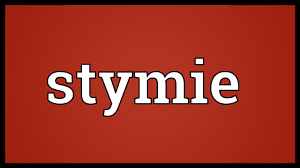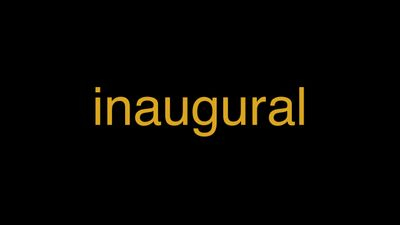What are the meaning, origin and usage of word ‘Stymie’?

(Pronounced stai.mee)
Meaning: As a verb, "stymie" means to hinder the progress of or to stop someone from doing something. As a noun, the term means a situation presenting such difficulties as to deter any attempt to deal with it.
Origin: Of uncertain origin, it perhaps came from the Scottish "stymie" meaning "person who cannot see well." The word "stymie" entered English in the 19th Century as a noun referring to a golfing situation in which one players ball lies between another ball and the hole on the green, thereby blocking the line of play. Later, it came to be used as a verb in the present sense and also in non-golf contexts.
Usage: Faced with financial constraints, the company is putting a stymie on spending.
Picture Credit : Google












